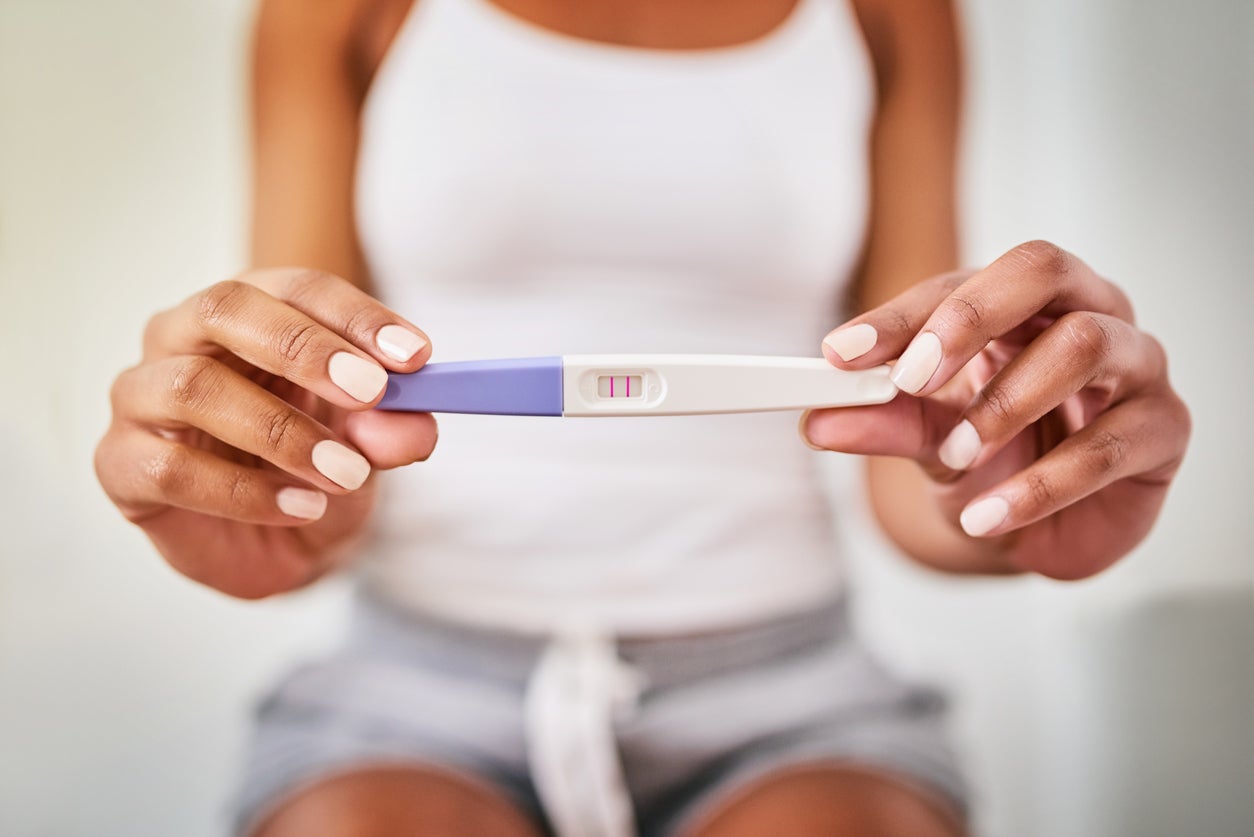Majority of pregnant women and new mothers ‘grappling with anxiety linked to pandemic’
Over three quarters say coronavirus crisis exacerbates their nerves

Your support helps us to tell the story
From reproductive rights to climate change to Big Tech, The Independent is on the ground when the story is developing. Whether it's investigating the financials of Elon Musk's pro-Trump PAC or producing our latest documentary, 'The A Word', which shines a light on the American women fighting for reproductive rights, we know how important it is to parse out the facts from the messaging.
At such a critical moment in US history, we need reporters on the ground. Your donation allows us to keep sending journalists to speak to both sides of the story.
The Independent is trusted by Americans across the entire political spectrum. And unlike many other quality news outlets, we choose not to lock Americans out of our reporting and analysis with paywalls. We believe quality journalism should be available to everyone, paid for by those who can afford it.
Your support makes all the difference.The majority of pregnant women and new mothers are grappling with anxiety sparked by coronavirus upheaval, a study has found.
Tommy’s, the UK’s leading pregnancy charity, discovered around half of mothers-to-be or women who recently gave birth are feeling anxious, while just over three quarters say the Covid emergency has exacerbated their nerves.
Experts, who polled over 1,000 mothers, warned false information and advice for pregnant women is compounding anxiety linked to the public health crisis.
The majority of those surveyed had heard widely touted misconceptions which can lead to women losing their baby during pregnancy or after birth.
Researchers found 65 per cent had encountered the pregnancy myth “you can eat for two”, while over half heard the false view “a little bit of alcohol is fine”, and one in four had been informed of the erroneous notion “baby movements are meant to slow down”. These falsehoods can “endanger mothers and babies’ health if believed”, the study warned.
Earlier research by the charity discovered certain types of media coverage can fuel the problem – with around nine in 10 pregnant women and new mothers saying headlines linked to pregnancy had left them frightened.
The issue of baby loss, which is often wholly unrelated to lifestyle choices women make during pregnancy, is shrouded by deeply-entrenched taboos and stigma, despite the fact around 14 babies die before, during or soon after birth each day in the UK. One in four babies are lost during pregnancy or birth.
Caroline, who gave birth to her first child last month, said: “This being my first pregnancy, I had so many questions, but trying to find answers actually stressed me out more."
The 34-year-old, who did not want her surname used, said the high volume of information about pregnancy was “overwhelming”. She said it was not always clear what guidance was accurate, with social media amplifying those concerns.
She added: “Pregnancy is so personal, but some people share their opinions like they are facts, so it can get very confusing very fast.”
The latest research found seven in 10 felt overwhelmed while pregnant or during the early stages of motherhood, with 14 per cent saying they found it difficult throughout the duration.
Professor Jacqueline Dunkley-Bent, NHS England’s chief midwifery officer, said resources like Tommy’s Healthy Pregnancy Tool, which is midwife-approved, give women the "support, reassurance and confidence they need to do what’s best for them and their baby.”
Kate Marsh, Tommy’s midwifery manager, said mothers-to-be and their partners need trustworthy advice and “personally tailored support” rather than “myths and misconceptions” which studies have wholly disproved.
She added: “Knowledge is power – and when it comes to pregnancy, feeling confident you have everything you need to do the right thing for you and your baby is important – but there is such a thing as too much information, which can leave mums-to-be anxious and overwhelmed."
A recent study by Tommy’s found poorer mothers are three times more likely to have stillborn children than those from more affluent backgrounds, while high levels of stress doubled the likelihood of stillbirth, irrespective of other social factors and pregnancy complications.


Join our commenting forum
Join thought-provoking conversations, follow other Independent readers and see their replies
Comments